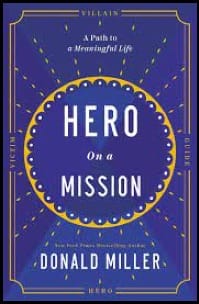New Book Review: "Hero on a Mission"
New book review for Hero on a MIssion: A Path to a Meaningful Life, by Donald Miller, HarperCollins Leadership, 2022:


Copy provided by Amazon.
Just after I had first started reading through this book, someone commented to me that they had also started reading another book, entitled "Man's Search for Meaning", by Victor Frankl. In response, I remarked on a coincidence: Frankl's book is not only cited throughout "Hero on a Mission", the author of this other book is actually cited at the outset within the introductory pages. While I had heard about Frankl's book, I had also never felt any interest in reading it, because I've not only already read numerous war-themed autobiographies, I've also heard spoken accounts directly from victims of the second world war and immediate post-war period from my own family members, who suffered extreme hardships.
However, upon hearing about Frank's book again, I took a closer look to determine whether I might want to read it as a personal follow-up to "Hero on a Mission", and came to the same conclusion. In my view, the differentiator between these two works is the practicality that Miller seeks to provide to readers. Frankl's account of his experiences is provided in the first part of his book, and a paper on logotherapy is provided in the second part, but at this point I'm not interested in hearing more war stories or theories about a particular life philosophy, and am instead interested in hearing what logotherapy, the therapy created by Frankl, might look like from a practical perspective as applied to one's life.